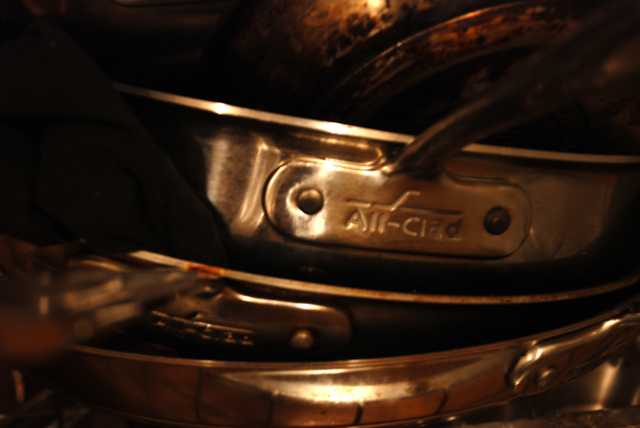The UK is way ahead of the US when it comes to being mindful of sustainable food sourcing and all that jazz. Maybe it’s their European sensibilities or funny accents that makes them so. In any case, the UK’s government has put together a manifesto of sorts, called Food 2030 complete with sofly-lit images of food and farms, which makes me think of a corporate presentation than an official government report.
The report is aggressive in the country’s goals for food production by the year 2030. They specifically talk about increasing domestic UK food production and lowering greenhouse emissions, and all of the major themes that come to mind when talking about food production.
However, not wanting to let this slip by without a little jabbing, the USDA released the following “report” on the UK document, saying that:
“In general, Food 2030 is considered to be ambitious in its vision, but short in detail about how to achieve that vision. Its strategy very much relies on all stakeholders working together to deliver its aim of a secure and sustainable food supply, and on consumer demand rewarding that investment. That has been the UK government‟s favored approach to food policy of late, and is unlikely to change as competition for ever smaller public funds increases across government departments.” – USDA GAIN Report, 1/21/2020
Now, it is not an official response or communication from the USDA. It is merely an assessment of a document that may have effects on US trade. Even still, this type of reaction seems a little harsh, especially coming from the USDA, which has engaged in some equally vague rhetoric about sustainable food production.
Let’s take a little journey back in time, to September of 2009. The USDA launches the “Know Your Farmer, Know Your Food” initiative, which has a lot of great ideas, but not too many suggestions on how to get there. Rather than sweat the details, the USDA posted videos of Willie Nelson talking about farms on YouTube, and set up a whole channel dedicated to sustainable food. There are certainly a lot of good ideas out there, but there’s been little action on any of these fronts, with the exception of maybe the White House Garden, which is more of a PR play than anything. The most tangible piece of legislature on the subject could be the Farm Bill, which is still the foundation for most of these programs, and that was passed two years ago (NB, Obama did not vote, but voiced his support). That bill is surely flawed, but it is basically the only source of any actual funding to help support local farming practices without only using images of little kids picking beets in the country.
But who knows what will happen, since many of the subsidies (including those marked for local farmers) are likely to be cut as part of the 2011 budget. While I applaud the larger farm subsidies going away (which seems unlikely given the strength of the lobby), it does seem a little misdirected in light of what the government is saying it wants to do. That makes the “Know Your Farmer” project seem, well, ambitious and short in detail. Until there is some concrete action, let’s take it easy on the criticism of other countries’ proposed policies. Sounds a little unfair to me.
On a positive note, the FDA is suggesting some serious changes to packaging and portion size, to help curb the rise in obesity. Read here.

